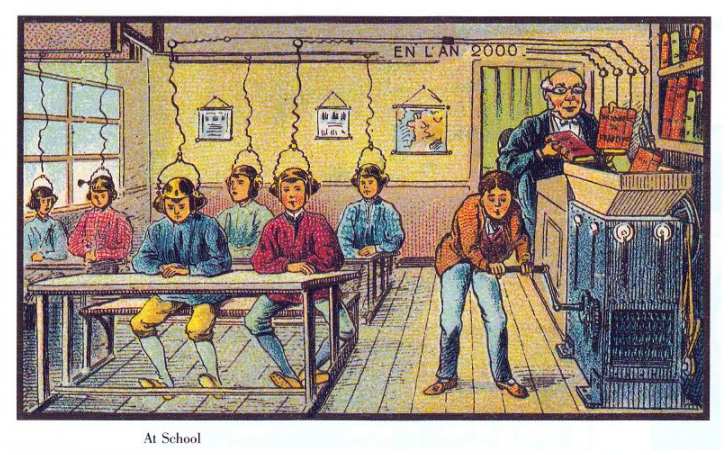You mustn’t fancy!
Bitzer is a child Not Left Behind. Give him your standardized tests. He will pass them above the fiftieth percentile. He will finish them with time to spare. Multiple-choice questions are his forte. He does not neglect to fill in scantron bubbles darkly and completely with his #2 pencil; he does not hesitate over which end is up when you place a computer mouse in his hand. During a computer-administered benchmarking test, he never, ever would sit, idly looking out the window, creating a mental list of the similarities and differences between the mouse in his hand and a real mouse—small, quivering, warm but for its pinpoints of chill toenails, overwhelming thanks to the astonishing miracle of its strongly fragile bones moving just under its fur. These details are not Facts but impressions. They are not on the test.
Bitzer is, thankfully for his proficiency score, not Sissy Jupe.
Did I call her Sissy?
I meant Cecelia.
Sissy, otherwise Cecelia, otherwise, girl number twenty, is, most assuredly, Left Behind. And with good reason. For despite years of living with a father who is a veterinary surgeon, a farrier, and horsebreaker (we do not say he belongs merely to the horse-riding, for that is not the American Dream), she cannot even define a horse when asked, is merely thrown into alarm.
‘Girl number twenty unable to define a horse!’ said Mr. Gradgrind, for the general behoof of all the little pitchers. ‘Girl number twenty possessed of no facts, in reference to one of the commonest of animals! Some boy’s definition of a horse. Bitzer, yours.’ . . .
‘Quadruped. Graminivorous. Forty teeth, namely twenty-four grinders, four eye-teeth, and twelve incisive. Sheds coat in the spring; in marshy countries, sheds hoofs, too. Hoofs hard, but requiring to be shod with iron. Age known by marks in mouth.’ Thus (and much more) Bitzer.
‘Now girl number twenty,’ said Mr. Gradgrind. ‘You know what a horse is.’
Thus boysplained by Bitzer, Sissy is edified and mortified—mortification being good for the soul and the ego, and particularly for those who would otherwise think they have the right to an education despite their migratory existence, their uncertain incomes, their unofficial status, their temporary residence. Such impermanent children do not deserve to be taken seriously. Ought not to be educated at the painstaking expense of effort expended by the likes of such a stout factotum as Mr. Gradgrind.
As a consequence, Sissy, while not making Adequate Yearly Progress, is not a figure for whom a government officer, inspecting the work of a Highly Qualified Teacher, will have much concern. Rightfully. The government officer is, after all, only there to knock the wind out of commonsense and replace it with her more enlightened understanding.
‘You must discard the word Fancy altogether. You have nothing to do with it. You are not to have, in any object of use or ornament, what would be a contradiction in fact. You don’t walk upon flowers in fact; you cannot be allowed to walk upon flowers in carpets. You don’t find that foreign birds and butterflies come and perch upon your crockery; you cannot be permitted to paint foreign birds and butterflies upon your crockery. You never meet with quadrupeds going up and down walls; you must not have quadrupeds represented upon walls. You must use,’ said the [inspector], ‘for all these purposes, combinations and modifications (in primary colours) of mathematical figures which are susceptible of proof and demonstration. This is the new discovery. This is fact. This is taste.’
No matter whether the inspector has no commonsense herself. No matter whether she is certain that wallpaper and carpets, crockery painting and quadrupeds ought to be the primary objects of an elementary school education. No matter whether she hopes to guard against both fancy and bears, or whether she fancies bears are the primary threat facing schools today. She has been nominated to this government position. She has been confirmed. Surely her money and privilege and taste know better than that of a migratory girl who is not a legitimate member of this community, who would in fact be better off going with her horse-riding father back to wherever it is they came from.
Sissy, blushing and curtseying, nodding in apparent understanding, does not challenge Thomas Gradgrind, sir, knows better than to open her mouth in opposition to the government inspector, will not mention again her desire for flowers.
But her fancy will not die. Her love of flowers will not wither. Her knowledge of horses (her lack of lexile level capable of using “graminiverous” in a sentence, notwithstanding) will not be extinguished.
Even the entrance of the formidable M’Choakumchild, whose head has been crammed full of all manner of Facts he endlessly imparts, cannot wholly dim the beam of sunshine in which Sissy sits.

And yet.
One fears tremendously for Sissy. For the near-automatons being produced on a steady diet of regulated and governed information. For the future as represented by school-children’s recitations of horsey definitions that show no interpretive power, reveal no sense of value, bespeak no connection between human and animal.
“If he had only learnt a little less,” the narrator intones, “how infinitely better he might have taught much more!”
“If only,” one might offer today, “facts and fancy were not so hopelessly confused that the government inspectors could not tell the difference, while the children who could were sentenced to standardized silence.”